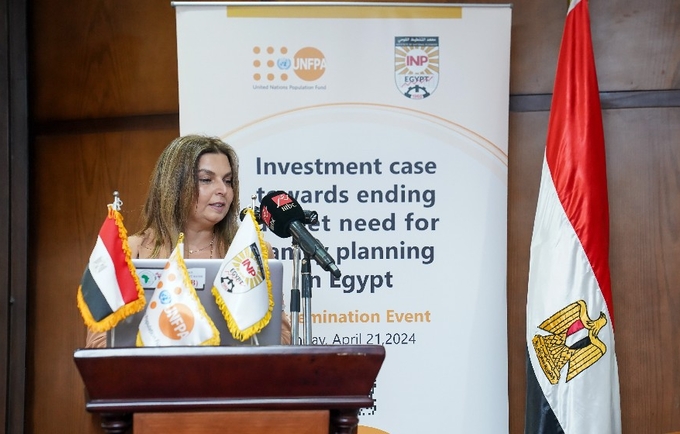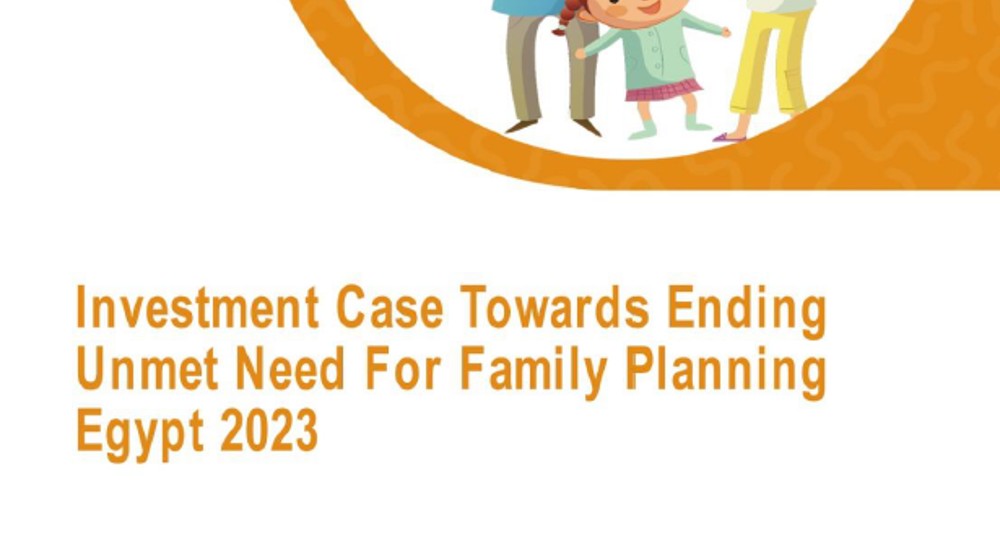A total investment of EGP 11.1 billion is needed in family planning to reduce unmet need for family planning in Egypt to 8.6 percent by 2030, and avert 1.4 million unintended pregnancies, according to an investment case jointly developed by the Institute of National Planning and UNFPA Egypt, with the support of the European Union.
The case also illustrates that an investment of EGP 11.5 billion in family planning would reduce unmet need for family planning in Egypt to 5.7 percent by 2030, and it will avert 2.3 million unintended pregnancies.
The investment case was presented in an event on April 21, bringing together Dr. Ashraf El-Araby, President of the Institute of National Planning, Germaine Haddad, UNFPA Officer In-charge in Egypt, along with representatives from the ministries of Finance, Health and Population, International Cooperation, Planning and Economic Development, Social Solidarity, along with Central Agency for Public Mobilization and Statistics (CAPMAS), the National Population Council, the National Council for Women, among others.
The investment case advocates for increased allocation for family planning from the public budget and calls for increased investments on family planning from international donors, private sector and promote more collaborative partnerships to leverage expertise and resources.
The Ministry of Health and Population, the Ministry of Finance, the National Population Council, CAPMAS, the Cairo Demographic Center and other experts contributed to the investment case with data and inputs. A reference group was established to ensure a robust validation of the results.
Egypt is making continuous progress on reproductive health and improving the health and quality of life of people. However, unmet need for family planning remains a persistent challenge.
Unmet need for family planning is defined as the percentage of women of reproductive age who want to stop or delay childbearing but are not using any method of contraception.
According to the Egyptian Family Health Survey (EFHS, 2021), unmet need for family planning in Egypt stands at 13.8 percent.
This investment case serves as a tool to demonstrate the potential of addressing unmet need for family planning through strategic investments and highlights its economic and social advantages.
In his address, Dr. Ashraf El-Arabi said the development of the investment case is consistent with the institute’s priorities in applying institutional analysis to support gender equality, women's empowerment, child care, and the achievement of social and economic development goals.
On her part, Haddad said; “Addressing unmet needs for family planning is very important for ensuring reproductive rights. Family planning is central to gender equality and women’s empowerment. When women are empowered to plan their families, they are better enabled to build a better future for themselves, their families, and their communities.”


